| Blue Eyed Grass Sisyrinchium campestre albiflorum This tender perennial plant grows best in stable prairies but can survive in disturbed areas. Grass-like in appearance it holds pale blue star shaped flowers near the top of the slender flattened stems. Alkaline soil conditions will produce white flowers. The petals open with sunlight, close at night and are an attractive addition to any garden. Does best in full sunlight but will tolerate some shade and well-drained soils. |
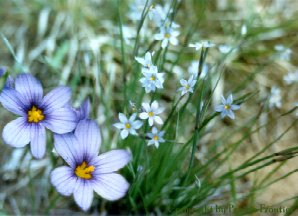 |
|
| Blue Flag Iris versicolor A hardly perennial that is common in marshes and wet prairies. Both leaves and stems arise from extensive creeping rhizomes with fibrous roots. (Which are poisonous, some people can develop a rash when handling roots, handle with care.) Each stem produces 1 - 2 beautiful flowers that have a yellow sepal which attracts insects for pollination. |
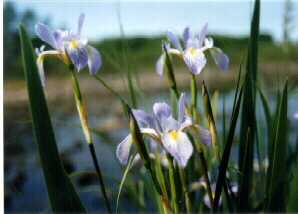 |
|
| Blue Flax Linum perenne lewisii Blue Flax is a hardy perennial that blooms late spring and into summer. Lavish light blue flowers adorn this native Californian plant that has adapted to most regions of North America. The 5-petaled flowers normally last only one day but new blooms appear everyday. It grows to a height of 1'-5', does best in dry, sunny conditions and is best propagated by seed. |
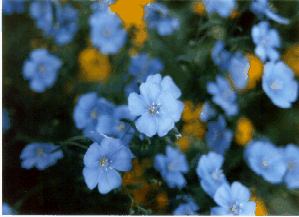 |
|
| Bottle Gentian Gentiana andrewsii This hardy fall perennial grows in wet meadows but will do fine in average soil moistures. Clusters of 2-5 blue to purple flowers sit atop the upper leaf axils of this 1'-2' native plant. Bees are one of the insects that can force their way inside the flower to achieve pollination. Easily propagated from seed or root divisions in spring or fall. |
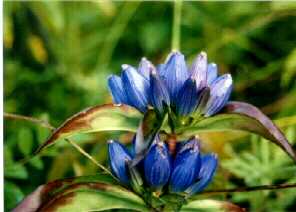 |
|
| Stiff Gentian Gentiana quinquefolia |
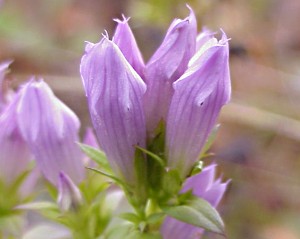 |
|
| Columbine, Dwarf Aquilegia vulgaris These beautiful flowers have showy, drooping, bell-like flowers with yellow tube centers that contain nectar. The purple-pink flowers bloom May thru July and reaches a height of 10"-18". Does well in sun or shade in sandy soils. |
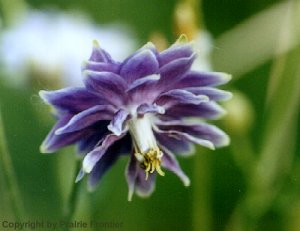 |
|
| Coneflower, Pale Purple Echinacea pallida Indicative of a quality prairie, this colorful native plant grows 2'-3' tall and has a deep, thick taproot. Each plant typically has 3-5 stems, each holding a flowerhead with pinkish-purple rays. The yellow pollen produced when blooming attracts many insects. Blooms June-July and does best on medium to dry sites. |
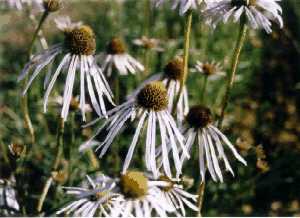 |
|
| Coneflower, Purple Echinacea purpurea A showy perennial is a low-maintenance, long blooming favorite. Butterflies and hummingbirds enjoy the nectar of this plant and small birds will eat the seeds. Growing 2'-5' tall, Purple Coneflower will grow in clay to sand and full sun to partial shade. Companion plants could be Black-eyed Susan, Yellow Coneflower or Goldenrod to name a few. |
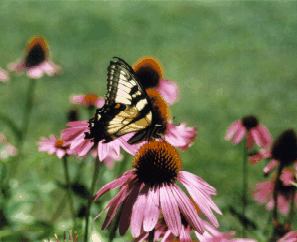 |
